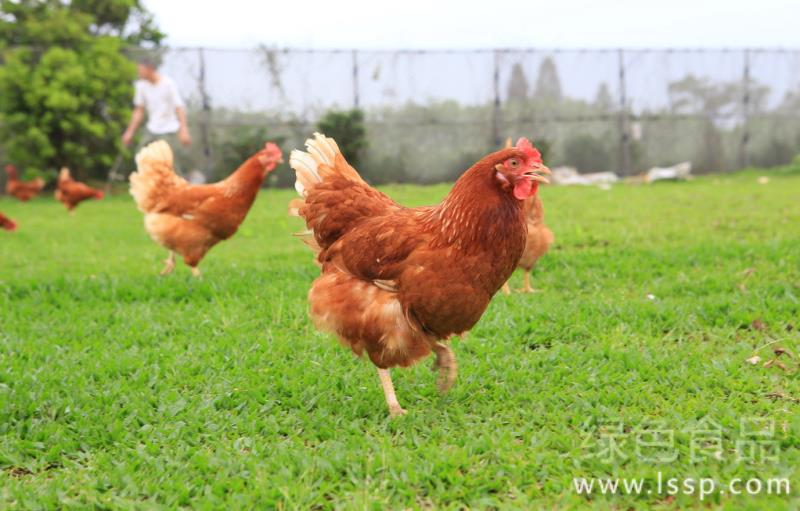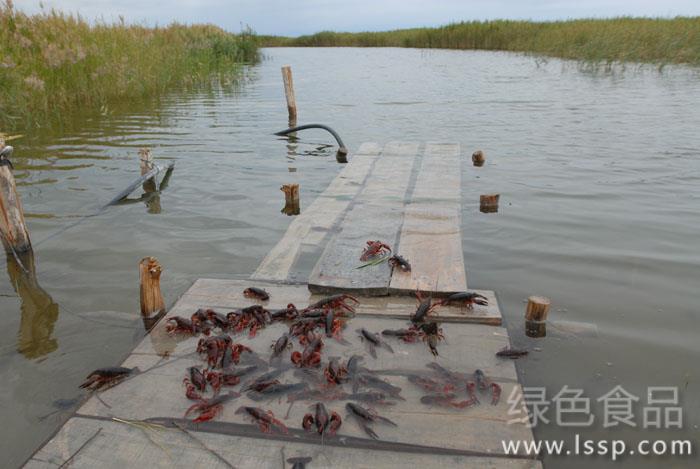How to prevent and control soft-shell eggs produced by geese at high temperature in summer
In summer, it is the late stage of breeding geese laying eggs, coupled with high temperature, the quality and production of goose eggs will decline, and the probability of laying soft-shell eggs will increase, so how to prevent geese from laying soft-shell eggs?

Goose
1. Clonorchiasis
Geese lay thin shell eggs, soft shell eggs or deformed eggs, followed by mental fatigue, standing, loss of appetite, abdominal enlargement, excretion of eggshell fragments or limestone-like fluid from the body, and finally increased body temperature, increased appetite, protruding cloaca, and died 2-7 days after onset.
Prevention and control measures: (1) strengthen prevention, regular survey of goose feces, find eggs, immediate isolation and treatment. (2) Goose dung should be accumulated and fermented in order to kill the eggs. (3) use hexachloroethane (fluke), 0.2g to 0.5g per goose, mix it into a small amount of concentrate, and make a small pill, once a day, three times a day. (4) take carbon tetrachloride at intervals of 5 to 7 days, and re-dosing once (preferably mixing the same amount of liquid paraffin each time).
2. There is lack of vitamin D or calcium and phosphorus in feed.
Lack of vitamin D in female goose feed, especially vitamin D3, or lack of calcium, improper proportion of calcium and phosphorus, or long overcast and rainy days, and geese can not get exposure to the sun, will cause metabolic disorders and begin to lay thin-shell and soft-shell eggs, and then the egg production will decrease or even stop production completely. Sick geese, weak legs, often crouching on the ground, beak softened, pecking difficulties, poor growth, enlarged joints.
Prevention and control measures: (1) usually add appropriate amount of minerals to the feed of geese to provide sufficient green fodder. (2) bask in the sun more than 6 hours a day. (3) inject An and D into the muscle of geese. (4) take cod liver oil once or twice a day. In order to improve the curative effect, you can feed vitamin D3, 150000 IU per goose each time. (5) feeding the goose with waste sugar from sugarcane sugar seeds (molasses): when the goose lays soft shell eggs, immediately mix 5% waste sugar into the feed of the goose, or add 5 kg of waste sugar to 50 kg of drinking water and feed the egg goose. After 7 days, the goose lays eggs normally. This is because the waste sugar not only contains sugar, but also contains vitamins, calcium, phosphorus and yeast, which can increase the appetite of geese, supplement vitamin D, calcium and phosphorus in time, increase sugars to meet the nutritional needs of geese, and improve the cold resistance of geese. Cure goose soft shell eggs.
- Prev

Diseases of broilers caused by muggy heat and humidity key points for raising broilers in rainy season
Diseases of broilers caused by muggy heat and humidity key points for raising broilers in rainy season
- Next

Prevention of crayfish diseases is more important than cure. how to prevent and cure crayfish body surface diseases
Prevention of crayfish diseases is more important than cure. how to prevent and cure crayfish body surface diseases
Related
- On the eggshell is a badge full of pride. British Poultry Egg Market and Consumer observation
- British study: 72% of Britons are willing to buy native eggs raised by insects
- Guidelines for friendly egg production revised the increase of space in chicken sheds can not be forced to change feathers and lay eggs.
- Risk of delay in customs clearance Australia suspends lobster exports to China
- Pig semen-the Vector of virus Transmission (4)
- Pig semen-the Vector of virus Transmission (3)
- Five common causes of difficult control of classical swine fever in clinic and their countermeasures
- Foot-and-mouth disease is the most effective way to prevent it!
- PED is the number one killer of piglets and has to be guarded against in autumn and winter.
- What is "yellow fat pig"? Have you ever heard the pig collector talk about "yellow fat pig"?

